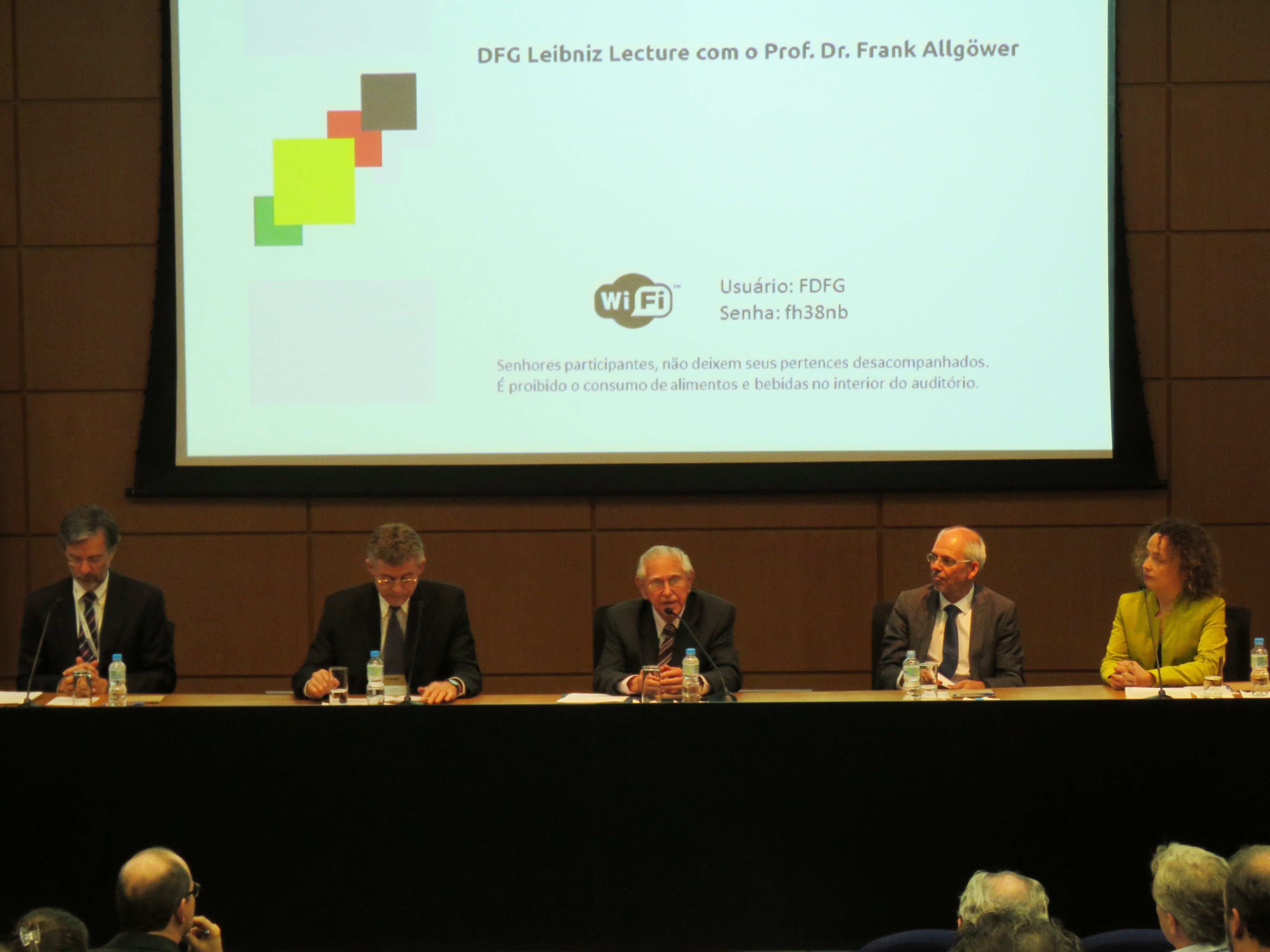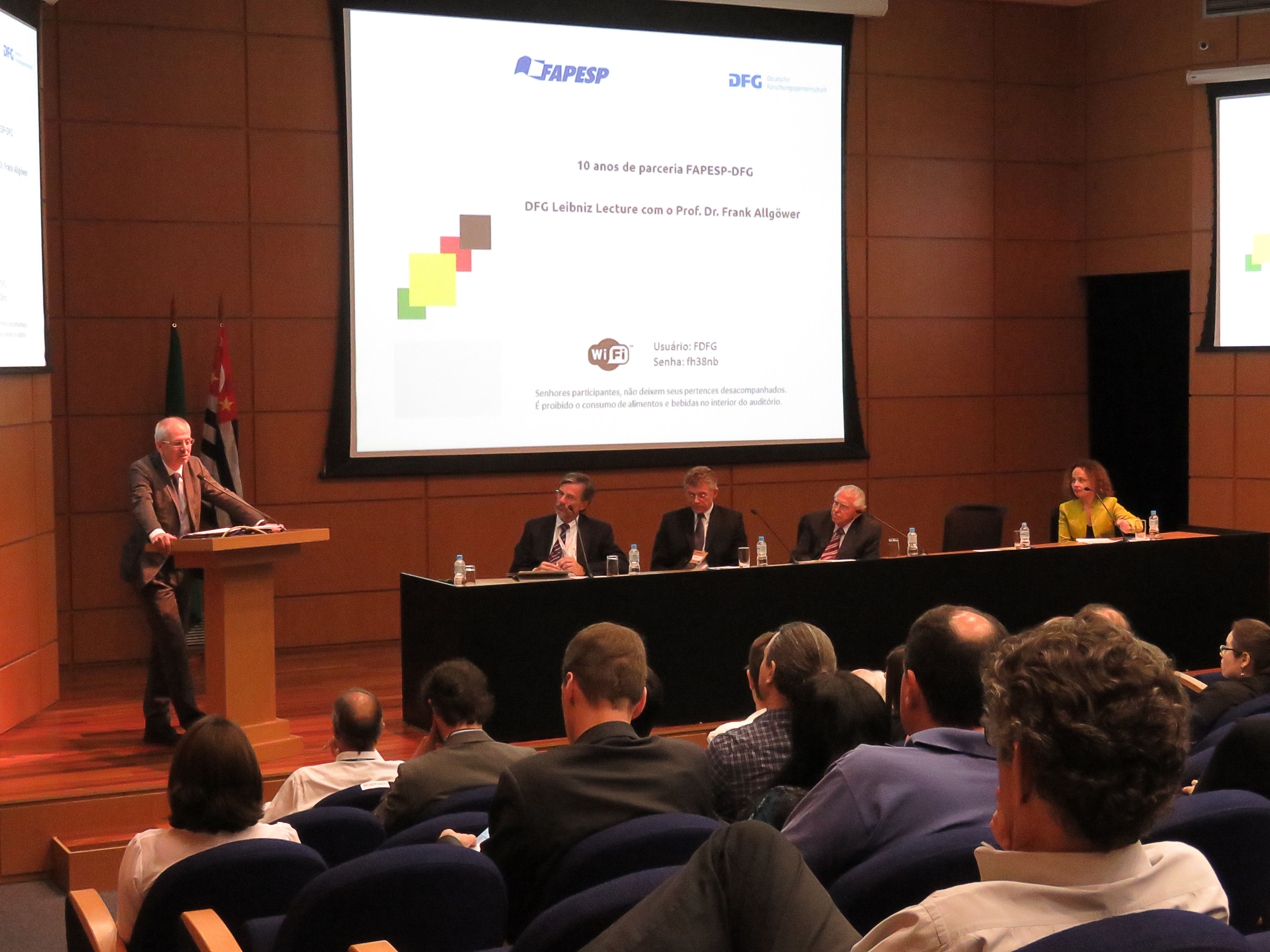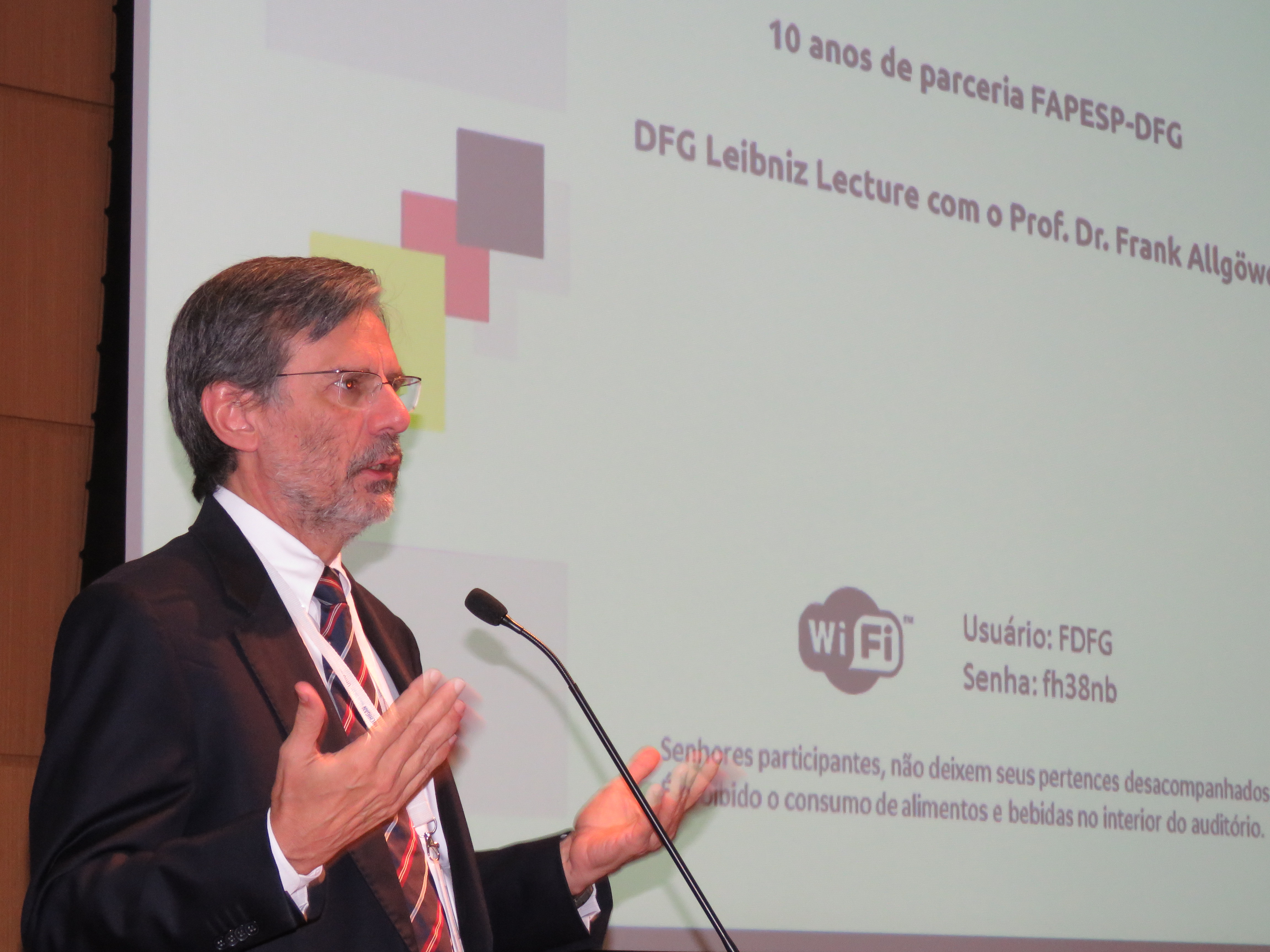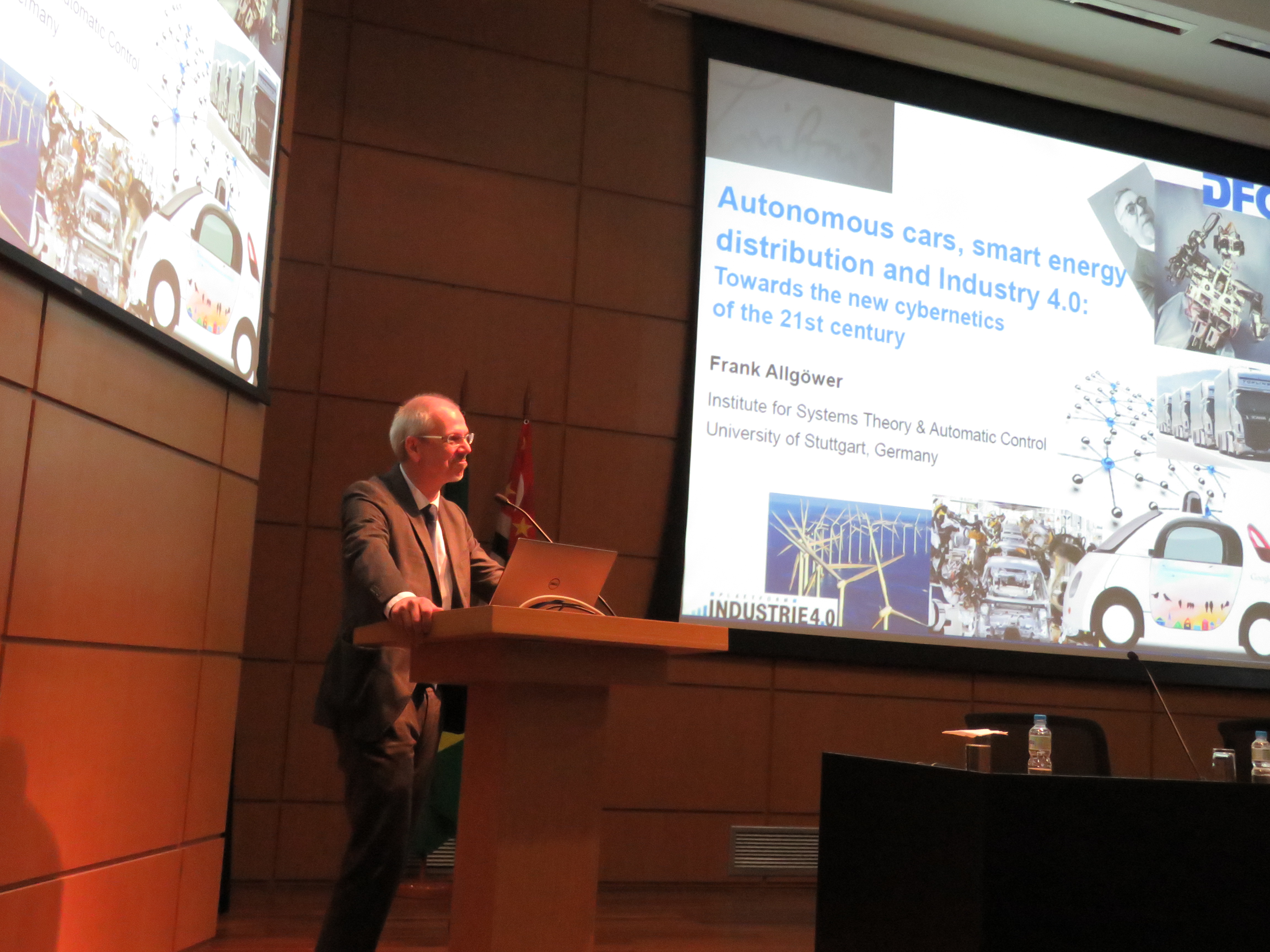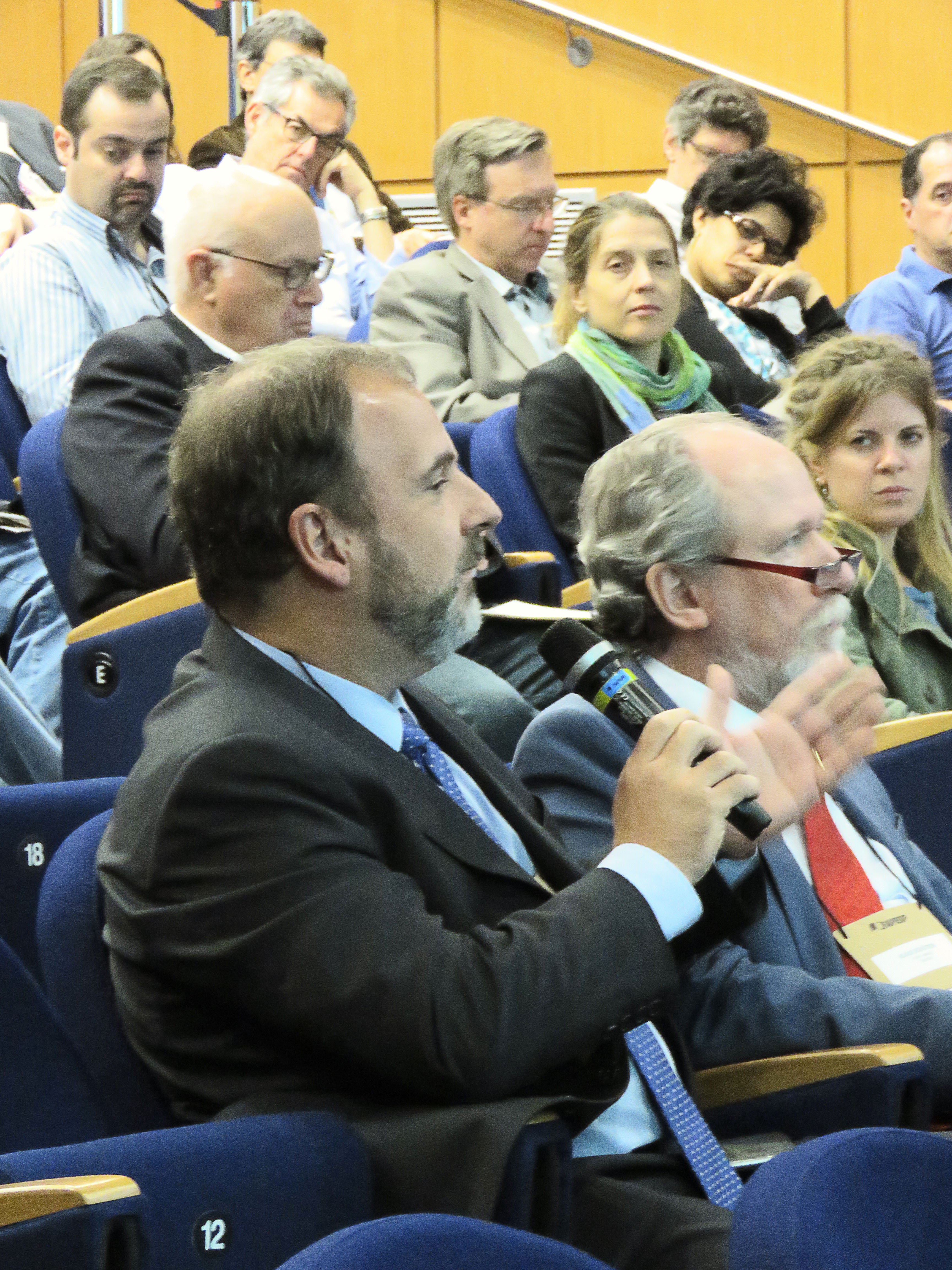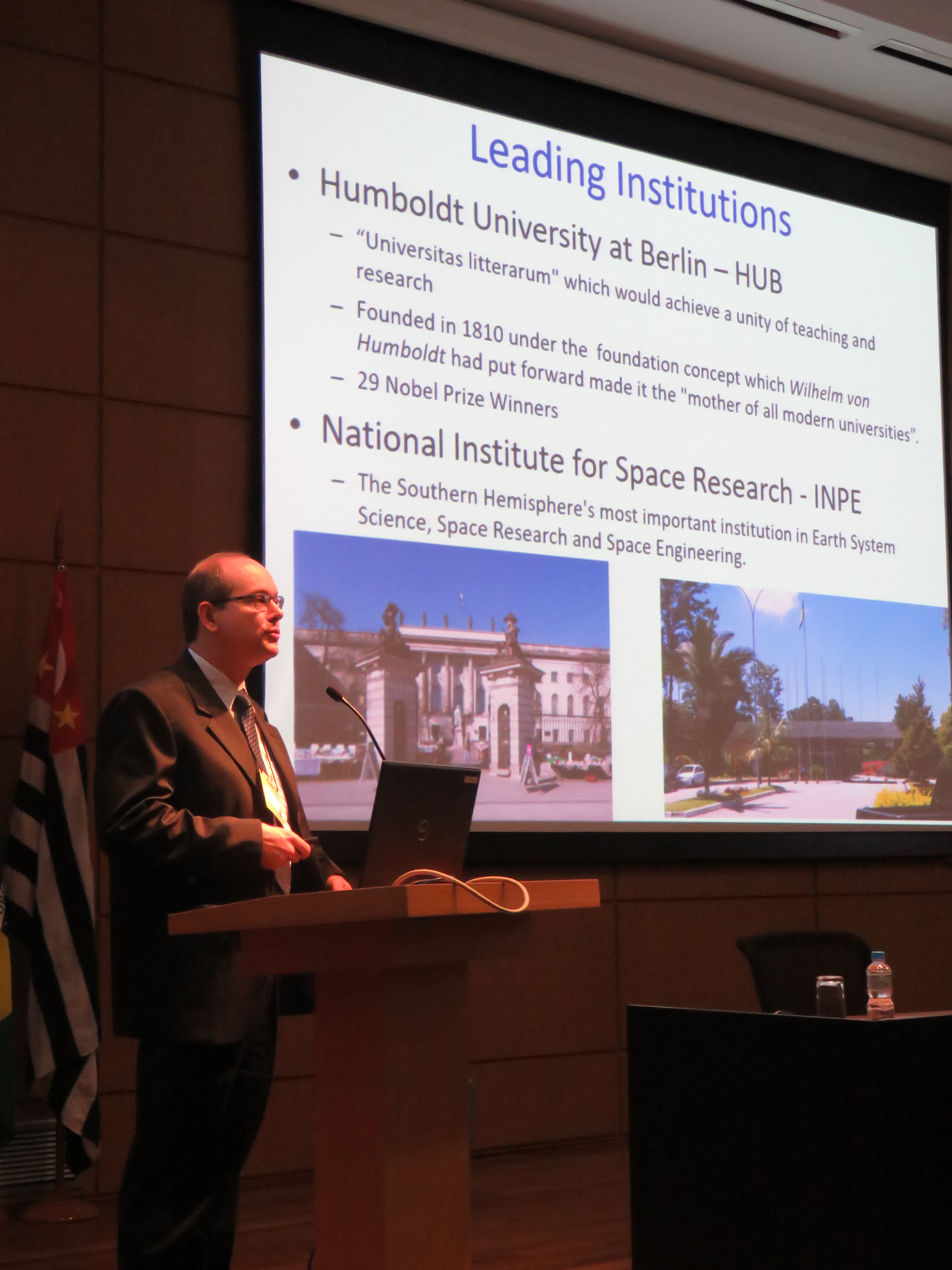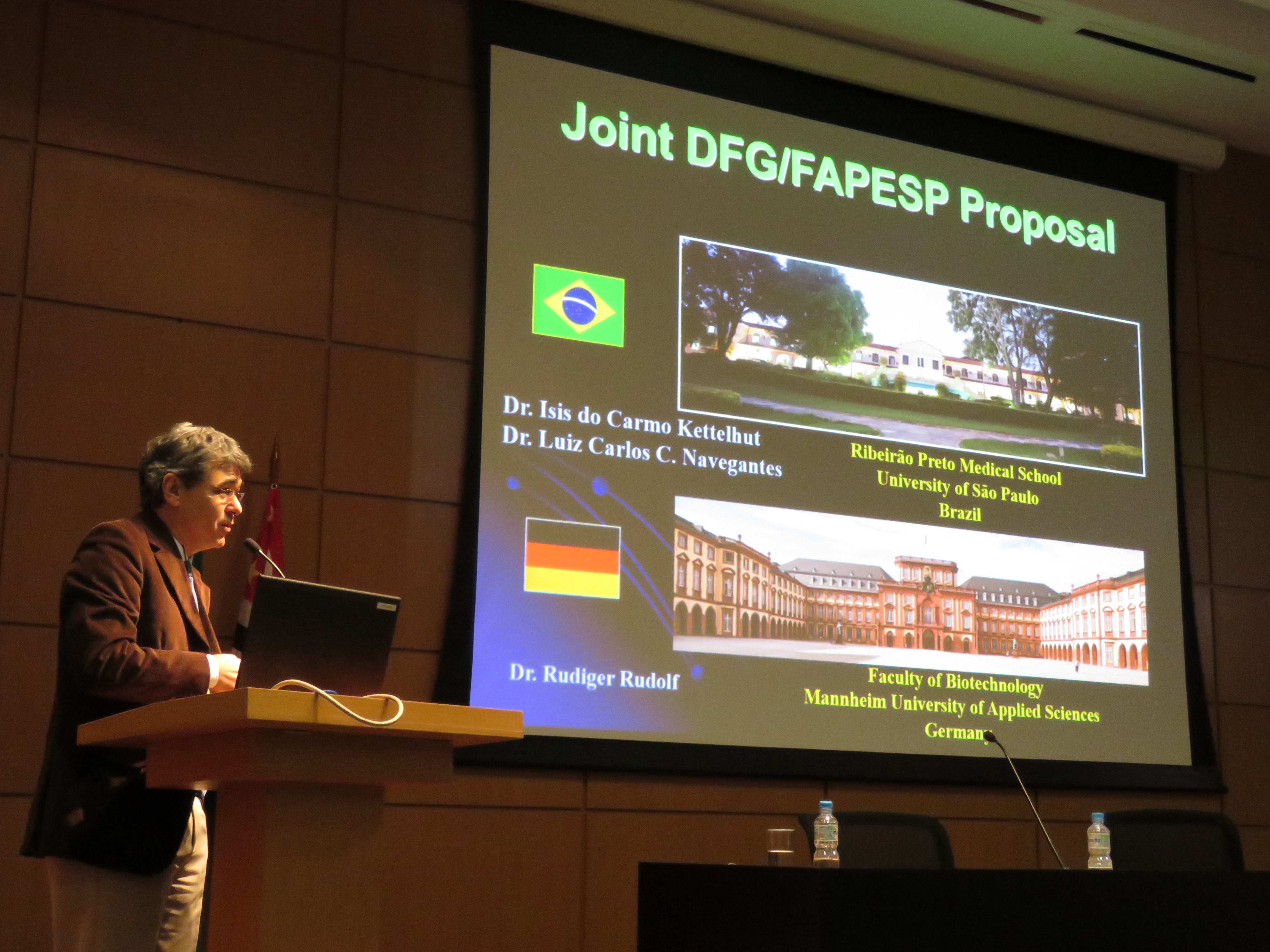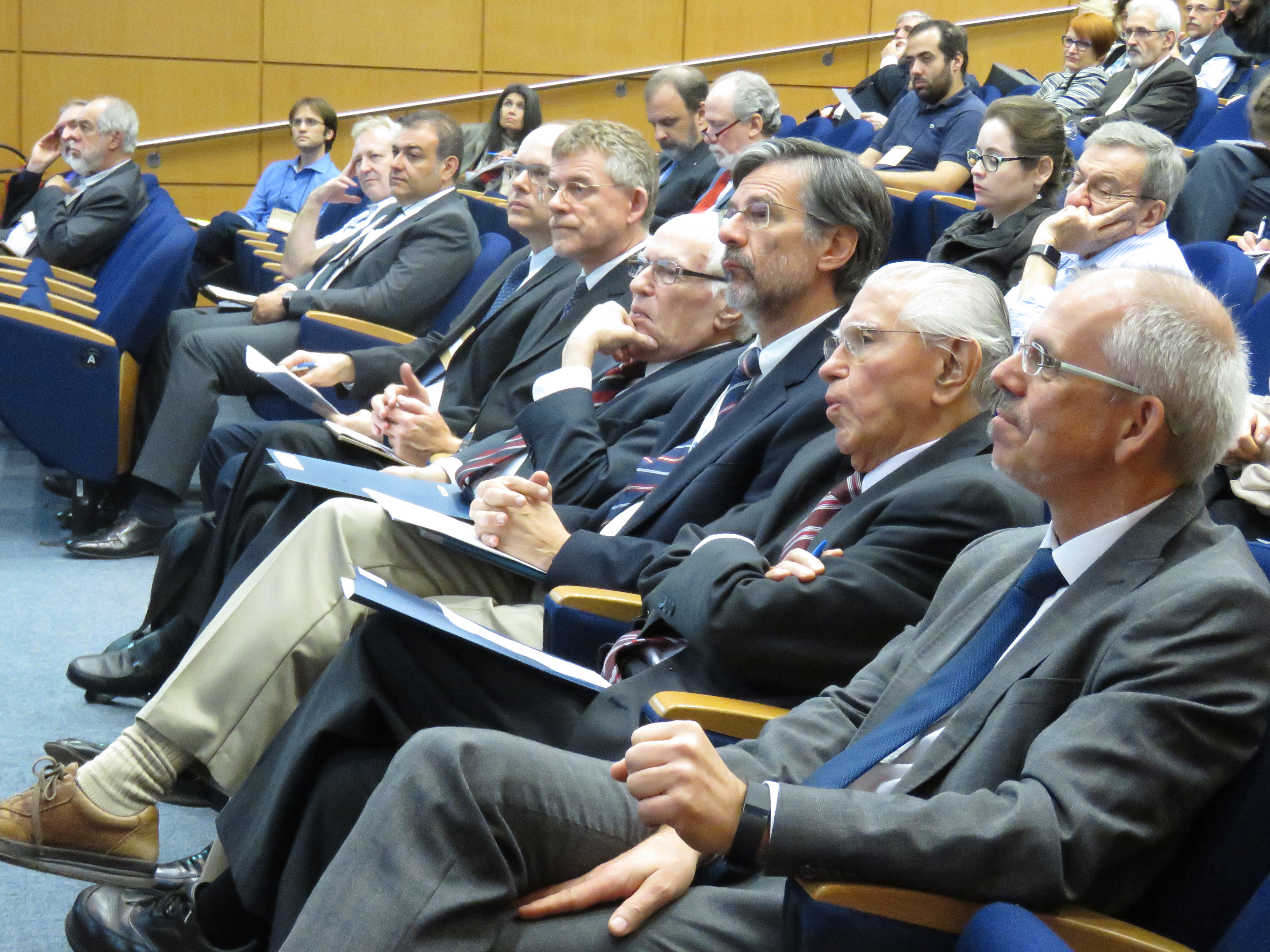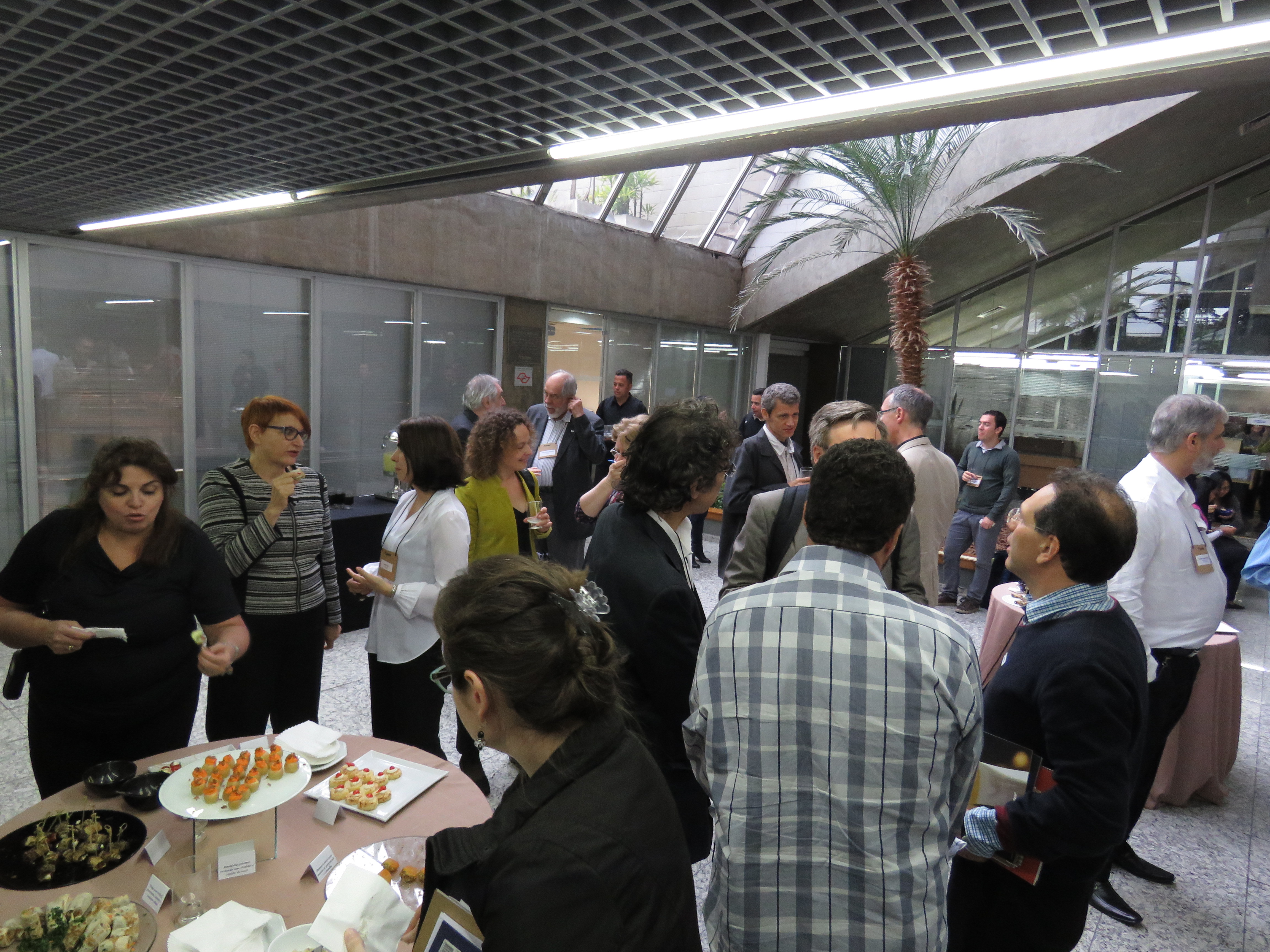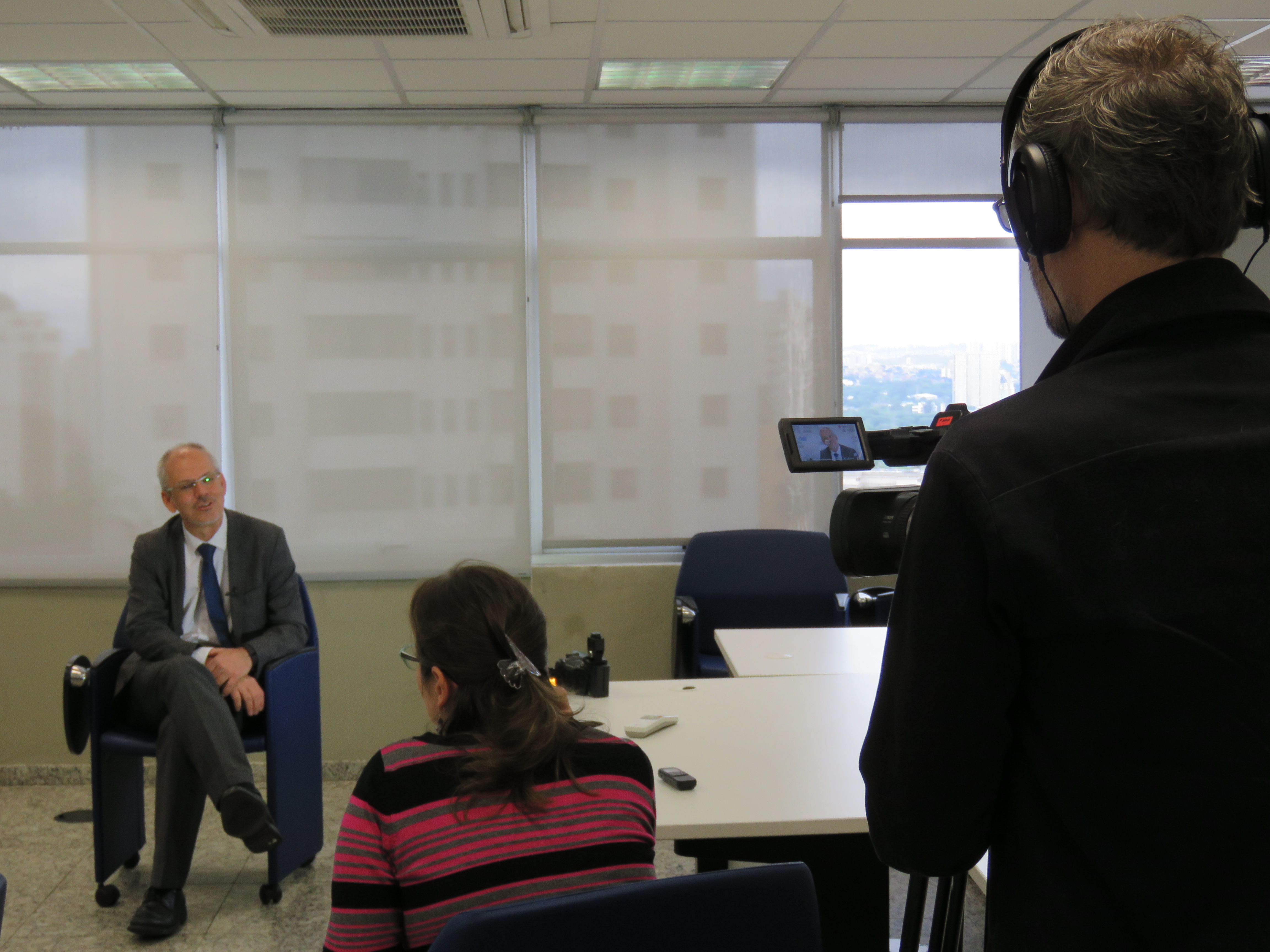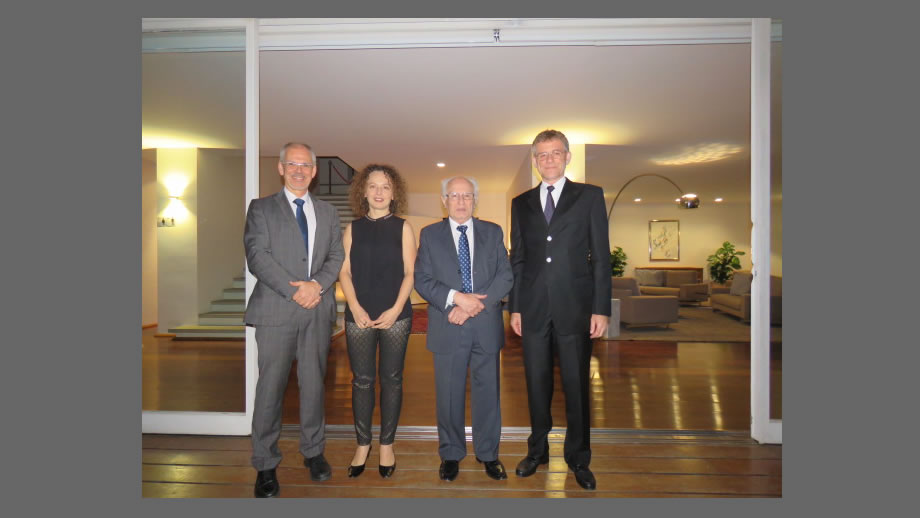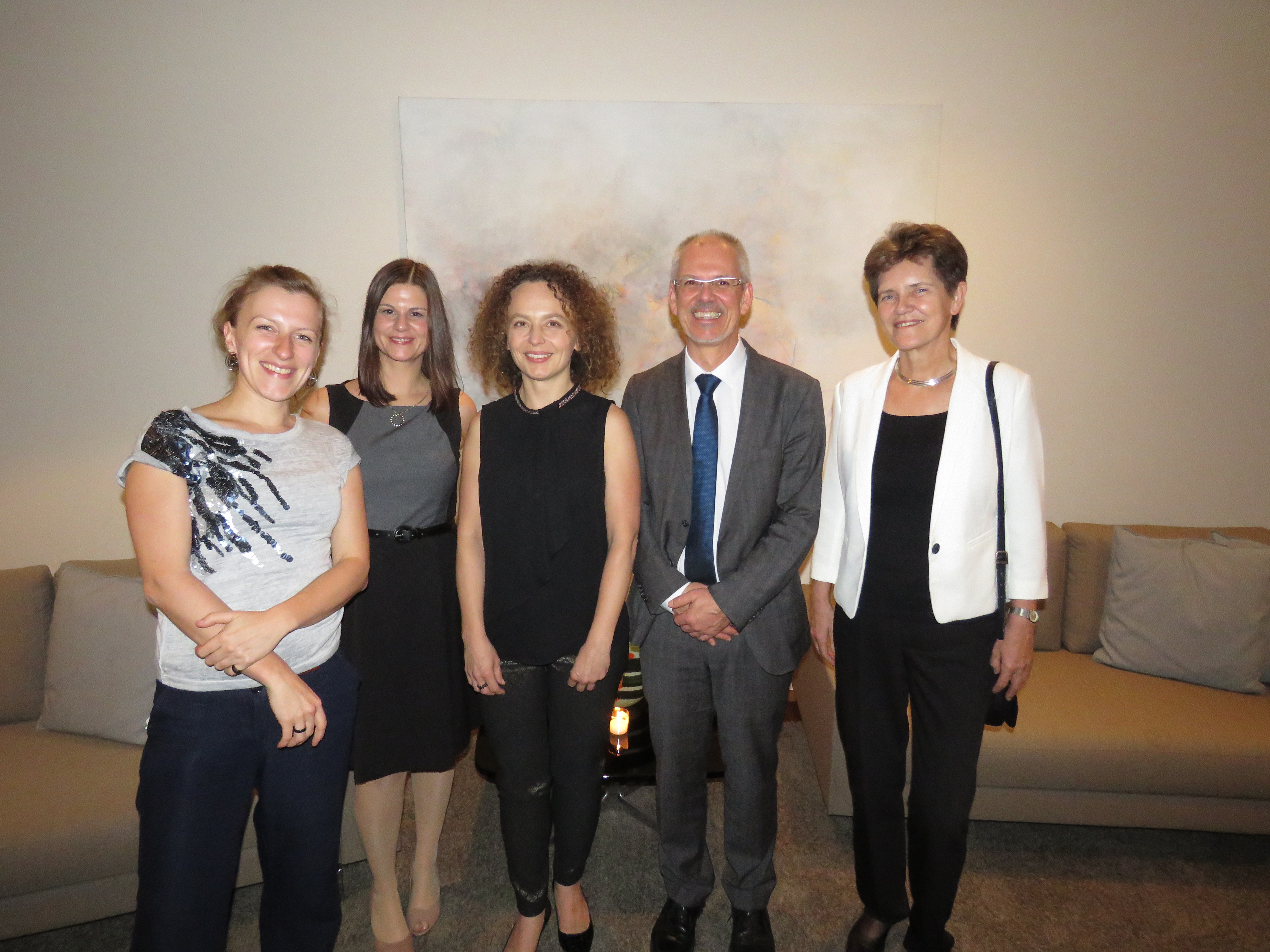Leibniz Lecture by Frank Allgöwer as Part of the Celebrations to Mark Ten Years of DFG-FAPESP Collaboration
(12.12.16) On 1 December, 2016, more than 100 interested people gathered at the location of the research funding organisation of the state of São Paulo, FAPESP, to celebrate the ten-year anniversary of the collaboration between the DFG and FAPESP. The event was formally opened by FAPESP Vice President Eduardo Moacyr Krieger, the Consul General of the Federal Republic of Germany, Axel Zeidler, the Scientific Director of FAPESP, Carlos Henrique de Brito Cruz, and the Head of the DFG Office Latin America, Kathrin Winkler. To mark the anniversary, DFG Vice President Frank Allgöwer underlined in his speech the excellent and exemplary relationship between the two funding organisations, which have much in common in terms of funding philosophy and principles: “Our two organisations have a guiding principle in common. When it comes to funding projects, it is scientific quality that is absolutely fundamental, and nothing else. Another aspect is the shared belief that scientific progress can be made, and insights gained, only through a certain freedom of research, and that knowledge-driven research is a basic requirement for social and economic development, for innovation and new technologies.” Carlos Henrique de Brito highlighted the fact that both organisations have the same level of appreciation of researcher initiative, knowledge-driven research and a bottom-up process in research funding, in which the scientific community applies quality criteria alone to decide what should be funded and how the selection process should take place.
As well as the formal part of the proceedings, the special highlight of the event was the Leibniz Lecture by DFG Vice President Professor Frank Allgöwer. In his address titled “Autonomous Cars, Smart Energy Distribution and Industry 4.0: Towards the New Cybernetics of the 21st Century”, the Head of the Institute for Systems Theory and Automatic Control at the University of Stuttgart used highly complex dynamic systems to explain the need for new concepts in cybernetics and control theory. He demonstrated the role played by feedback for the understanding and control of linked networks in complex systems. Whether autonomous vehicles, swarm robotics, smart factories and cities or industry 4.0 – all these applications are highly complex and work in linked networks with an ever greater degree of automation and growing autonomy. The related challenges are just as complex. They range from purely technical requirements in the area of sensors and amplification, to requirements for basic research in order to understand these systems, to the development of methods for system construction. In particular against a backdrop of rapid technological and industrial developments, social and societal aspects also play an increasingly important role, going as far as the question of whether these highly complex systems will someday be able to take over control of our actions. Here, Allgöwer appealed for interdisciplinary research approaches in which engineering sciences and natural sciences should work together with social sciences and humanities in order to rise to the challenges posed by the complexity of such systems.
The Gottfried Wilhelm Leibniz Prize is the most important research funding award in Germany. Worth up to €2.5 million, it is awarded annually by the DFG to outstanding researchers. The Leibniz Lectures serve as a format for scientific exchange and dialogue between prizewinners and researchers from all over the world, as well as interested members of the public. In Brazil, too, this format has become established as a successful event series, in particular in collaboration with FAPESP. Frank Allgöwer’s Leibniz Lecture was already the fourth to be organised by the DFG Office Latin America.
In addition to the Leibniz Lecture, two research projects were presented that have been funded jointly by the DFG and FAPESP in the last few years. Paulo Ruffino presented the work of the jointly funded International Research Training Group “Dynamic Phenomena in Complex Networks”, which entered its second funding period at the beginning of this year. Ruffino, who has been involved in the Research Training Group from the beginning as an expert in the area of Stochastic Dynamics, offered interesting insights from the point of view of a participating researcher. In addition to its interdisciplinary nature, he considers an important characteristic of this funding programme to be the opportunity for doctoral researchers to gain experience in an international research context early in their careers, which offers not only the chance of international publications, but also the possibility to make long-lasting contacts in the partner country.
Luiz Navegantes from the Faculty of Medicine at the University of São Paulo in Ribeirão Preto presented the German-Brazilian research project “Role and Mechanism of Action of Anabolic Stimuli on Neuromuscular Trophicity”, which he ran between 2013 and 2015, together with his colleague Isis Kettelhut and their German collaboration partner Rüdiger Rudolf from the Mannheim University of Applied Sciences. The contact was established in 2010 during the European Muscle Conference in Italy, and followed by visits in both directions and, in 2012, a joint proposal for a bilateral research project.
As well as his Leibniz Lecture, Frank Allgöwer held discussions with representatives of FAPESP and in interviews talked about his research activities and the collaboration between the DFG and FAPESP over the last ten years. The interview with Agência FAPESP is already available in Portuguese with an English-language video. It is due to be published in the January edition of the print journal “Revista Pesquisa FAPESP”.
The scientific event was rounded off by a dinner at the residence of the German Consul General for São Paulo, Axel Zeidler, which was attended by around 40 guests from science and science policy.
To close his visit to São Paulo, Frank Allgöwer, together with Karin Zach, Head of the Physics and Mathematics Division at DFG Head Office in Bonn, had the opportunity to visit the German House for Research and Innovation (DWIH-SP), home to the DFG Office Latin America. In conversation with the coordinators of the House and its partners, Professor Allgöwer expressed his enthusiasm for the outstanding cooperative partnership and collaboration.
In addition to the event with the Leibniz Lecture, the ten-year anniversary includes two announcements to the scientific community. The first gives detailed information on the joint funding instruments currently available, from introductory instruments, to bilateral research projects, to coordinated programmes funded by both sides, as in the case of the International Research Training Group mentioned above. The second announcement involves a specific call for bilateral workshops, which it is hoped will stimulate new collaborations and serve as preparation for new projects.
Previous Leibniz Lectures in Brazil:
- Prof. Dr. Frank Kirchhoff, Immunologist at University Hospital Ulm and Leibniz Prizewinner in 2009, “Why Was HIV-1 Able to Cause the AIDS Pandemic?” (August 2015
- Prof. Günter M. Ziegler, Mathematician at the Free University of Berlin and Leibniz Prizewinner in 2001, “Stars, Polyhedra, Ellipses and Soap Bubbles: Some Stellar Images between Geometry and Physics” (September 2014
- Prof. Dr. Onur Güntürkün, Biopsychologist at the University of Bochum and Leibniz Prizewinner in 2013, “Cognition without Cortex: The Convergent Evolution of Avian and Mammalian Forebrains” (May 2014
